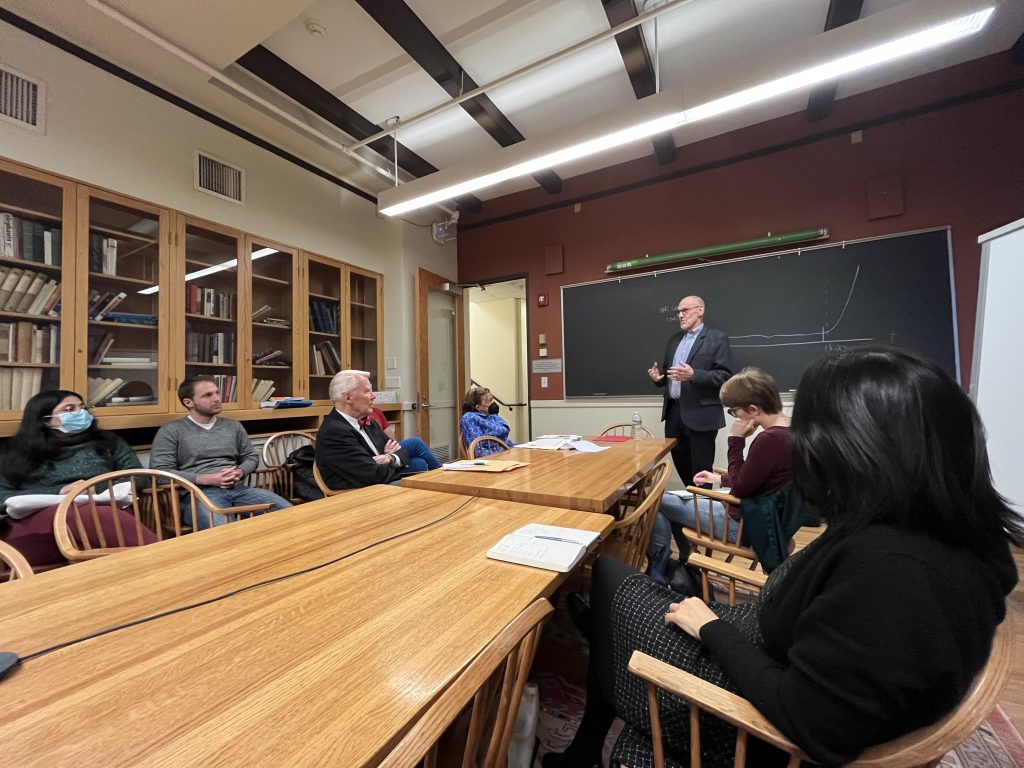
Mark Pomar Talks Cold War and the Rise of Voice of America as a Public Diplomacy Tool
By Vishal Manve, MALD 2023 Candidate, The Fletcher School
On October 17, 2022, the Russia and Eurasia Program and Edward R. Murrow Center for a Digital World at The Fletcher School co-hosted a conversation with public diplomacy expert Mark Pomar on his latest book, “Cold War Radio: The Russian Broadcasts of the Voice of America and Radio Free Europe/Radio Liberty.” Professor Tara Sonenshine chaired the event.
Pomar spoke about his time as a journalist during the Cold War, saying, “I decided to write this book for three reasons. I realized I was a witness to and participated in one of the great historical events in history–the collapse of the Soviet Union and the emergence of Central and Eastern Europe. I wanted to capture some part of it.”
The book delves into how the United States waged the Cold War through radio, including Voice of America (VOA) and Radio Free Europe/Radio Liberty (RFE/RL). During the Cold War, the VOA Russian Service broadcast twenty-four hours a day, seven days a week. VOA was broadcasted in more than forty languages, explaining U.S. government policies and telling America’s story as a tool for public diplomacy. RFE/RL functioned as a “home service” located abroad and broadcast in more than twenty languages of Central and Eastern Europe and Eurasia.
Pomar held senior roles within both organizations between 1982 and 1993, when these media organizations became a crucial aspect of U.S. foreign policy. He stated that the book was not a memoir, but drew from crucial notes he maintained about radio’s development and its usage in public diplomacy during Eisenhower, Kennedy, and Reagan’s presidencies. Pomar also discussed how his research allowed him to explore how the Cold War started, cable by cable, between Washington and Moscow.
Regarding the perception of the radio programs as a propaganda tool, Pomar said, “The role of radio was not to censor and just present what sounds nice. If you want to be a serious radio and news organization, you have to present serious diversity of opinions, which meant criticism as well.”

He added, “One senator who most firmly supported the radio–and saved the radios in 1993–was Senator Joe Biden. He came to our board meetings, and he spent time with us. His staff was in our office often.”
In response to a question about the BBC, Pomar answered “The BBC did not broadcast as many hours as [VOA] did. Our hours were more and our salaries were better. When I was head of the Russian program, it was fascinating how the U.S. had allies in corporations. I visited the BBC headquarters for a week, and the BBC Director came to VOA. We would have conferences and there were a lot of commonalities, and we were encouraged to work complementarily and not competitively.”
Yury Nadtochey, a visiting scholar at The Fletcher School, highlighted the information hunger that the VOA and other stations addressed.
“[VOA] was extremely important and spread liberal ideas among some parts of Soviet society. But we need to ask a very pertinent question. In today’s time, how effective is broadcasting in influencing people since there exists no information hunger?” Nadtochey stated.
You can get a copy of the book here.
